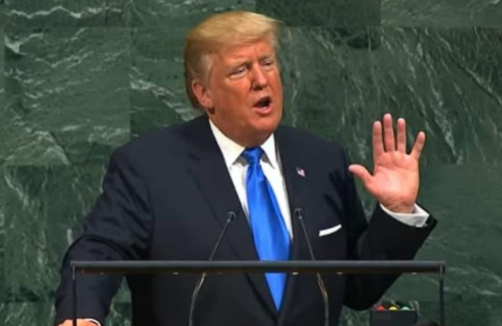Turkey: December trade deficit at $6.79 billion
In December, the country we exported to the most was Germany, followed by the US, England and Iraq.
According to the December GTS (General trade system) foreign trade data announced by TURKSTAT in cooperation with the Ministry of Commerce; Turkey’s exports increased by 24.9% to 22.28 billion USD in December 2021 compared to the same period of the previous year, while imports increased by 29.9% to 29.07 billion USD in the same period. Thus, the foreign trade deficit increased by 49.3% between December 2020 and December 2021 and became 6.79 billion USD. The ratio of exports to imports decreased from 79.7% to 76.6% in the said period.
In December, the country we exported to the most was Germany, followed by the US, England and Iraq. Exports to 27 countries that make up the European Union increased by 23.3% to reach 8.86 billion USD, while the share of the EU in our total exports decreased from 40.3% to 39.8%. In import items; Russia took the first place in December 2021, followed by China, Germany and the US. While the share of intermediate goods (raw materials) in total imports increased in December, the share of capital and consumption goods decreased. While the share of exports of high technology products in our total exports was 3.6%, the share of the same group’s imports in our total imports was 11.5%.
According to STS (Special trade system), Turkey’s exports increased by 25.2% in December 2021 compared to the same period of the previous year and became 21.17 billion USD, while imports increased by 30.3% to 27.42 billion USD in the same period. The ratio of exports to imports was 77.2% in the said period.
While the export power increased significantly throughout the year, especially the price developments experienced as of December and the inelasticity of demand for intermediate goods brought along a remarkable increase momentum in imports. The acceleration in import growth, especially with the increase in energy imports, caused the foreign trade deficit to widen in December compared to both November and December 2020. We are faced with an increasing external bill due to the developments in December, especially the high volatility in the exchange rate. Although the outlook in exchange rates indicates a slight decline only in the last week of December, there is still a very high inflation environment inside. At the same time, we approach the projections for current account surplus with reservations, as the main inflationary trends and the exchange rate developments that create it will continue to force us in imports of intermediate goods. Because, the increase in Turkey’s dependency on imports of intermediate goods (79.3% of total imports as of December) indicates that the tendency to export based on imports continues.
At this point, it is obvious that structural studies should be carried out to change Turkey’s current import-dependent export model. It is necessary to ensure that imported intermediate goods can be produced in Turkey at a certain rate, or Turkish companies should be active in foreign markets that will also provide strategic advantages. Apart from this, increasing the export weight of 3% on the high-tech side stands at a critical place in terms of global market competition in high value-added goods groups. Turkey needs to build a model that will focus on high-quality production and its export, on which high profit margins can be added on intermediate goods and production costs, and it needs to increase import substitution in order to have minimal interaction against global price fluctuations. We think that a structural approach should be brought to the current account surplus and the desire to be a net exporter in the new economy model.
In terms of current balance projections; We have advantages and disadvantages. We are at a positive point in terms of tourism revenues. The decrease in the effects of the epidemic is important in terms of increasing tourism revenues or keeping it around the average of normal years. Similar factors are also important for the increase in exports; because the epidemic-effective situations regarding supply chains and logistics are in a decisive place both in terms of foreign demand and our net export outlook. Gold imports, on the other hand, got rid of the extreme situation in 2020 and decreased even below the normal averages, so we do not see any additional pressure on total imports. Our disadvantaged position is mostly due to the sharp depreciation of the TRY and the increasing energy costs from the import part. Since the unit volume effect in imports does not decrease due to energy demand, the depreciation of TRY causes an increase in the price effect and an increase in the external deficit. In the new economy perspective, the main motivation is to support the growth momentum. This shows that the situation for monetary and fiscal policies to remain broad will be valid. For this reason, we approach the current account surplus estimates for 2022 much more moderately, and we think that the reservation factors should be evaluated. There may be a realization of approximately 4.9 billion dollars in the current account deficit in December. This shows that we may have closed 2021 with a current account deficit of close to 16 billion dollars (2.1% of GDP).
In terms of growth projections; We think that the energy cuts in industrial production in January and the ongoing supply problems may create downside risks. It should be considered that the factors affecting foreign trade will also affect the domestic production line, especially through the need for intermediate goods. Looking at the leading data, the manufacturing PMI remains in the expansion zone since May 2021 with 52.1 in December. On the other hand, annual expansion in industrial production is still at a strong growth point due to the return from the negative effects of the previous year. We think these momentums will slow down by 2022. Accordingly, we think that the GDP growth, which we calculated as 10.8% for 2021, will slow down towards the 4% band in 2022.
Kaynak Tera Yatırım-Enver Erkan
Hibya Haber Ajansı





















